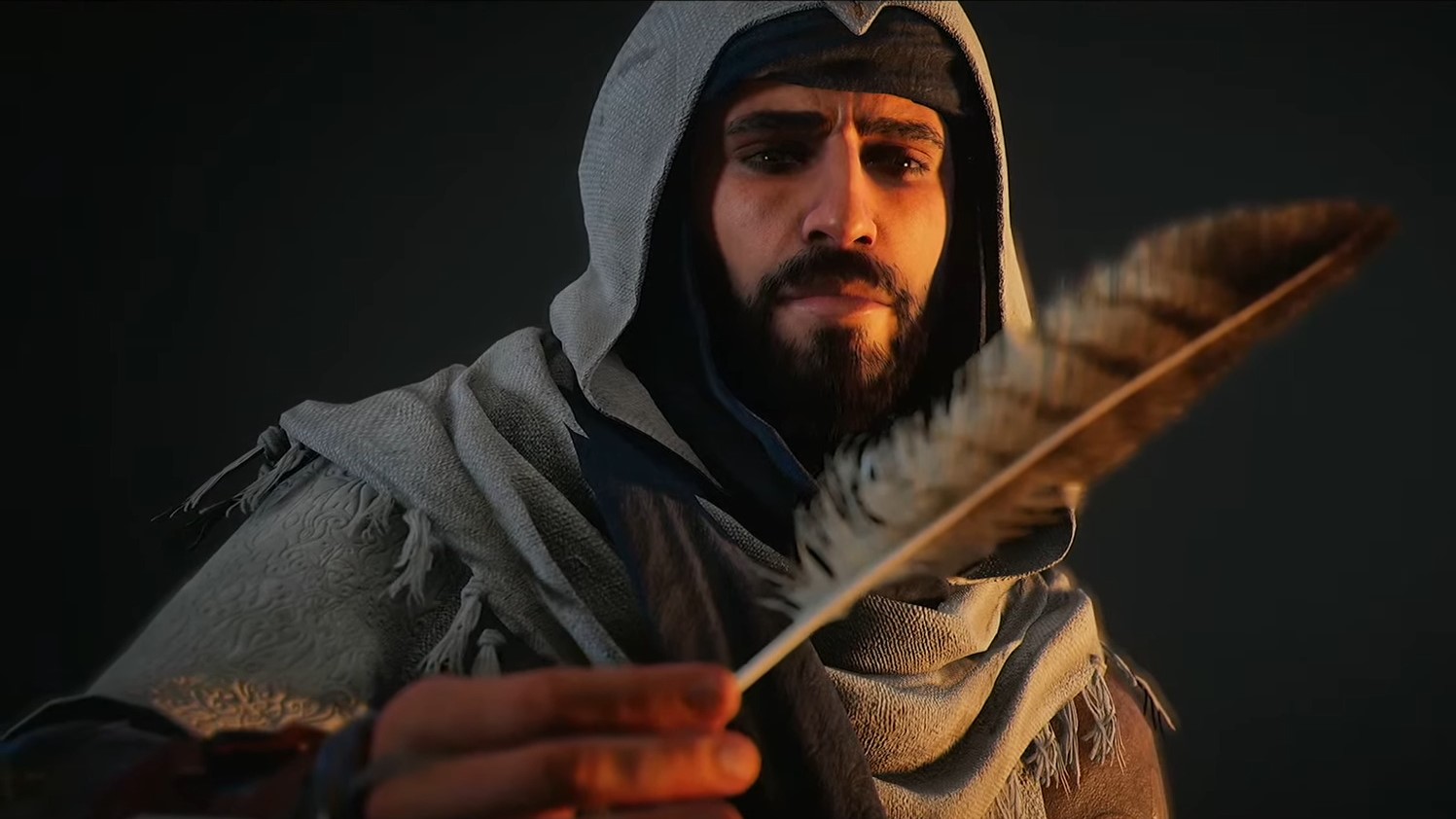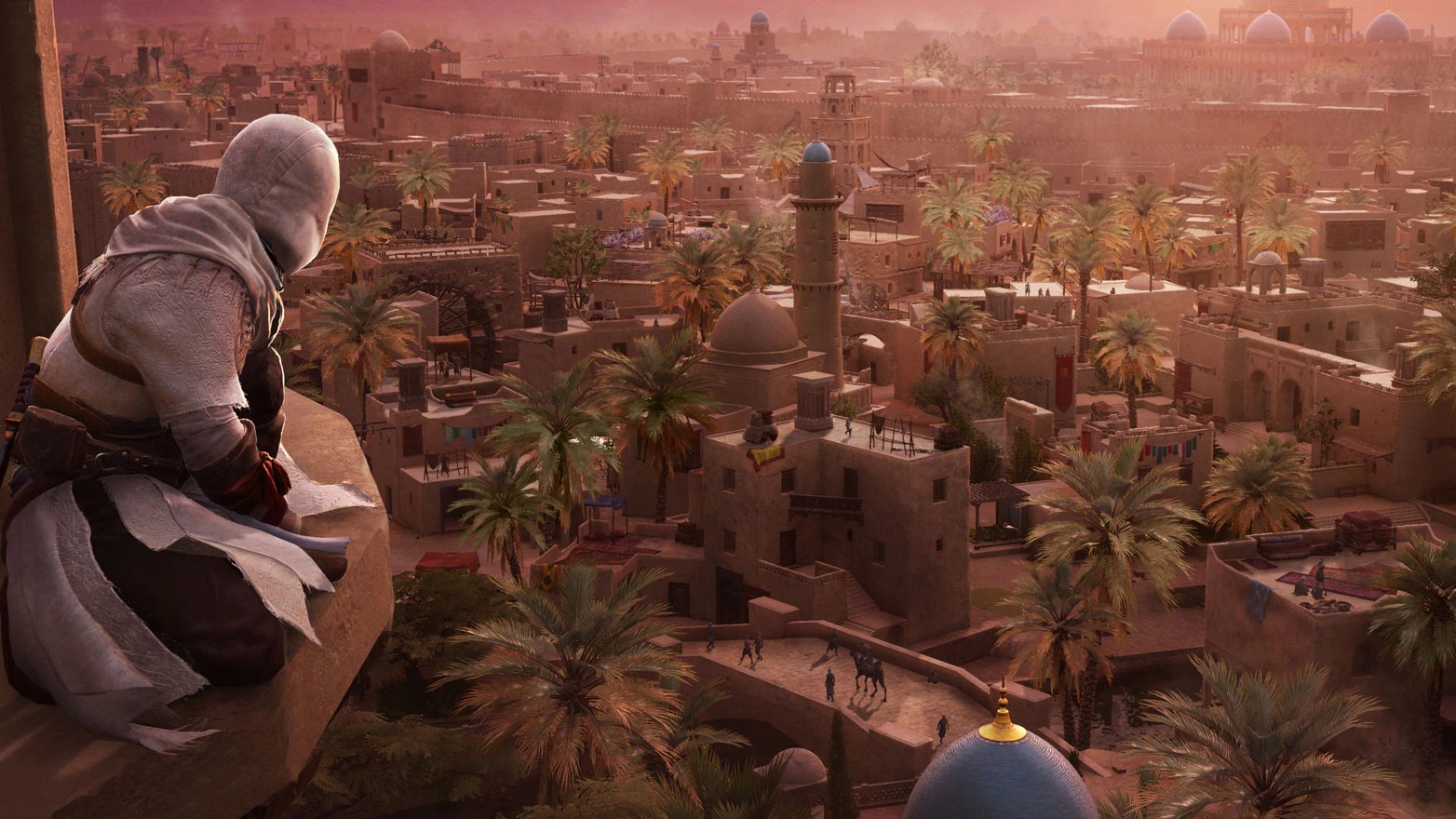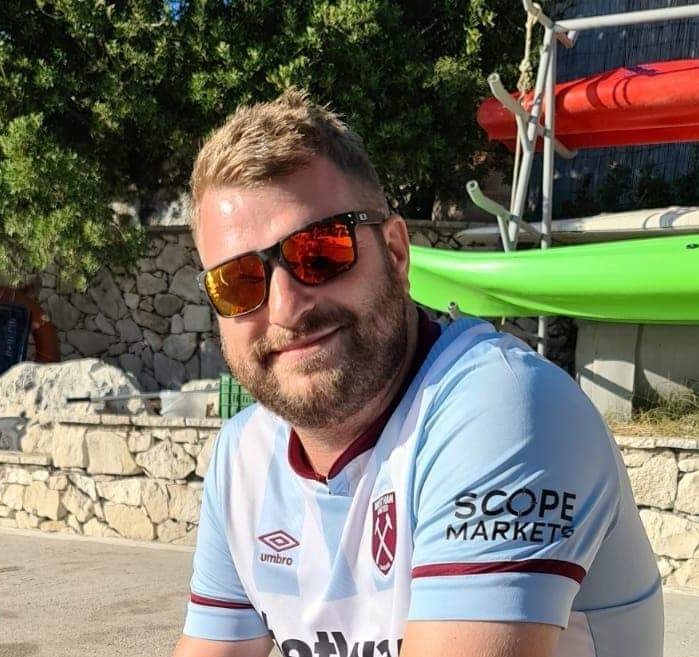
Sign up for breaking news, reviews, opinion, top tech deals, and more.
You are now subscribed
Your newsletter sign-up was successful
Assassin’s Creed Mirage gets a lot right. The stealth action game’s refined scope, focused setting, and emphasis on bringing back the tense excitement of the early games in the series was a huge success in my eyes. It’s my personal game of the year, and also, I think, one of the very best Assassin’s Creed games in the whole series.
The skill and execution of making Baghdad and the people that inhabit it - among them, protagonist Basim - authentic shone through in many ways, but one that resonated most loudly for me was the audio design, specifically that of the Arabic language. The beautiful language was used throughout the game, appearing not just in atmospheric or ambient soundscapes like crowds of people, but in prominent sections of dialogue and from main characters too.
In previous Assassin’s Creed games, we’d have heard bits of Italian, Greek, or French, but there definitely seemed to be heavier use and increased implementation of the game’s ‘local’ dialogue in Mirage. As a result, I acted upon a strong urge to embrace what part of Ninth Century Baghdad I could and so I added Arabic as a course on Duolingo - a popular app that helps you learn new languages.
I became so immersed in Basim’s tale and world that I wanted to dive in deeper, and, as well as connect the spoken language with the subtitles, try to understand even just a bit of the native dialect of the people of the Abbasid Caliphate.
I’ve always had an appreciation for Arabic from afar, and I’m sure I’m not alone in that with Arabic often being thrown around in conversations as one of the most beautiful languages in the world. However, it is also often considered incredibly difficult to learn, or at least to grasp the basics.

Speaking in tongues
Video games have had this effect on me before, and there’s always something about languages in games that’s caught my interest. Mirage is not the first to awaken or reawaken the inner language learner that lurks within me.
My wife is German and my retired parents were language teachers (predominantly German, too), so I’m quite accomplished with German by default and enjoy putting it to the test in games. Playing the likes of the Wolfenstein series (any of the ‘modern’ entries) or a Sniper Elite, I’ve always let the German soldiers do the talking and embrace the language in its unadulterated authenticity. I have gone through periods of playing with the English subtitles off to try and totally go by ear and while I get most of the chat - especially so when skulking around and just listening patiently - it gets quite difficult when in the middle of heated gunfights.
Sign up for breaking news, reviews, opinion, top tech deals, and more.
I remember always coming out of those games with a renewed interest and passion - and appreciation - for the language, and the value of understanding that comes with broadening your linguistic horizons. It was also fun translating bits of Wolfenstein: Youngblood to my co-op buddy and practicing my pronunciation successfully by playing a video game, honing my German through the very act of playing a game.
A lexicon of language

I’m also keen on Italian and have enjoyed the authentic ambient few Italian snippets you can get in Sniper Elite 4 or, to bring it back around to the series, the native phrases and chat that’s thrown around in parts of Ezio Auditore’s trilogy of Assassin’s Creed games.
When I read the first book in the Assassin’s Creed novelization series earlier this year, itself littered with Italian phrases, I was able to draw another parallel and connect my genuine enjoyment for video games and languages and the encouragement to learn the latter from the former, once more, this time via another medium.
Returning to Mirage and Arabic, despite having an aptitude for picking languages up, I didn’t understand full sentences of the game's flowing Arabic after a few Duolingo sessions. However, I gained an immediate and heightened appreciation for Arabic as a lyrical, poetic language. It’s enormously pleasing that my favorite game of the year has inspired and empowered me to mutter even a few syllables of Basim’s mother tongue.
It’s also firmly remained on my Duolingo course list since I finished the game too, sitting happily alongside my German and Italian lessons, contributing occasionally to the 450-odd streak of days on the app that I’ve got going.
Video games can make us feel or do a lot of interesting things, but I don’t think I’d have had ‘inspire me to learn or practice languages’ necessarily high up on a list back when I first started playing them decades ago. Now, however, I love it as a means to soak up a game’s sense of place, characters, and authenticity to greater levels.
If you’re looking for more top game recommendations, then check out our guides to the best PS5 games, best PS4 games, best Xbox Series X games, and best PC games you can play right now.

Rob is the Managing Editor of TechRadar Gaming, a video games journalist, critic, editor, and writer, and has years of experience gained from multiple publications. Prior to being TechRadar Gaming's Managing Editor, he was TRG's Deputy Editor, and a longstanding member of GamesRadar+, being the Commissioning Editor for Hardware there for years, while also squeezing in a short stint as Gaming Editor at WePC just before joining TechRadar Gaming. He is also a writer on tech, gaming hardware, and video games but also gardens and landscapes, and has written about the virtual landscapes of games for years.